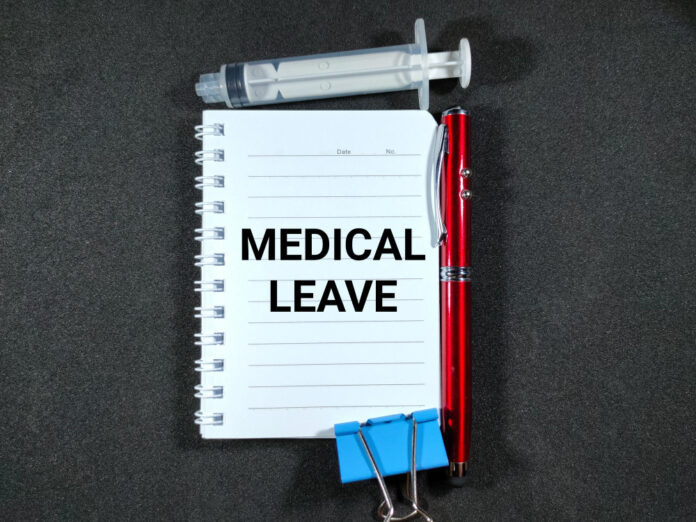Medical leave is a critical resource for employees who need time away from work to address serious health issues. Whether it’s for surgery, chronic illness management, or mental health support, taking medical leave ensures that employees can focus on their health without the added stress of work obligations. However, a common concern among employees is whether they can be fired for taking medical leave. Understanding the Orange County medical leave legal protections available and knowing your rights can help alleviate these fears.
1. Understanding Medical Leave
Medical leave refers to a period when an employee takes time off from work due to a medical condition. This leave can be short-term (a few days or weeks), long-term (several months), or intermittent (occasional days off as needed). Common reasons for taking medical leave include surgery, recovering from an illness, managing a chronic condition, mental health treatment, and caring for a family member with a serious health issue.
2. Legal Protections for Employees on Medical Leave
Employees are protected under various federal and state laws when it comes to taking medical leave. Understanding these protections is crucial to ensure your rights are upheld.
a. Family and Medical Leave Act (FMLA):
The Family and Medical Leave Act (FMLA) is a federal law that provides eligible employees with up to 12 weeks of unpaid, job-protected leave per year for certain family and medical reasons. To qualify for FMLA, an employee must:
- Have worked for their employer for at least 12 months.
- Have worked at least 1,250 hours over the past 12 months.
- Work at a location where the company employs 50 or more employees within 75 miles.
Under FMLA, employees are entitled to return to their same or equivalent position after their leave. Employers cannot fire, demote, or penalize employees for taking FMLA leave.
b. Americans with Disabilities Act (ADA):
The Americans with Disabilities Act (ADA) prohibits discrimination against employees with disabilities and may require employers to provide reasonable accommodations, which can include medical leave. If an employee’s medical leave is a reasonable accommodation under the ADA, they are protected from termination due to their disability or the leave itself.
c. State Laws:
Some states offer additional protections beyond the FMLA. For example, California’s California Family Rights Act (CFRA) expands the eligibility and duration of leave, while New York’s Paid Family Leave provides paid time off. It’s essential to check your state’s specific laws to understand the full extent of your protections.
d. Employer Policies:
Many employers have policies that go beyond the minimum legal requirements. Reviewing your company’s employee handbook or speaking with HR can clarify what additional protections or benefits your employer offers.
3. Exceptions and Limitations
While there are strong protections in place, there are exceptions and limitations that employees should be aware of.
a. Ineligibility under FMLA:
Not all employees are eligible for FMLA leave. If you haven’t met the eligibility requirements, you may not be protected under FMLA. In such cases, your employer may have more discretion in how they handle your medical leave request.
b. Exhaustion of Available Leave:
If you’ve exhausted your 12 weeks of FMLA leave, or if your leave exceeds the company’s policies or state laws, your employer may have grounds to terminate your employment, especially if your absence impacts business operations.
c. Legitimate Business Reasons for Termination:
Employers can terminate an employee on medical leave for legitimate business reasons, such as company downsizing or elimination of the employee’s position. However, the employer must be able to demonstrate that the termination was unrelated to the medical leave.
d. Misconduct or Fraud:
If an employee engages in misconduct or fraudulently uses medical leave, they may be terminated. For instance, if an employee takes medical leave under false pretenses or violates company policy during their leave, the employer may have just cause to fire them.
4. Steps to Take if You Are Fired While on Medical Leave
If you find yourself terminated while on medical leave, it’s important to take the following steps:
a. Review the Reason for Termination:
Carefully examine the reason your employer provided for your termination. If the reason is vague or seems unjustified, it may be worth challenging.
b. Gather Documentation:
Collect all relevant documentation, including medical records, FMLA approval forms, emails, and any correspondence with your employer related to your leave. This information will be crucial if you decide to take legal action.
c. Legal Recourse:
You have the right to file a complaint with the Department of Labor if you believe your FMLA rights have been violated. Additionally, consulting with an employment attorney can help you explore options for a wrongful termination lawsuit.
d. Know Your Rights:
Understanding your rights and the timelines for taking action is critical. FMLA violations typically have a statute of limitations of two years, while discrimination claims under the ADA may have different time limits depending on the state.
5. How to Protect Yourself While on Medical Leave
To protect yourself and your job while on medical leave, consider the following best practices:
a. Communication:
Keep open lines of communication with your employer. Provide necessary documentation, update them on your medical condition as needed, and inform them if your return-to-work date changes.
b. Documentation:
Maintain detailed records of your medical leave, including all communications with your employer, medical certifications, and any leave requests. These records can be crucial if your leave is challenged.
c. Understand Your Rights:
Familiarize yourself with the FMLA, ADA, and any state laws that apply to your situation. Knowing your rights will empower you to advocate for yourself effectively.
Taking medical leave is a fundamental right for employees, but understanding the legal landscape is essential to protect yourself from wrongful termination. Knowing your rights under FMLA, ADA, and state laws will help you navigate your leave confidently. If you face challenges or termination related to your medical leave, don’t hesitate to seek legal advice. Protecting your health and your job should always be a priority.
